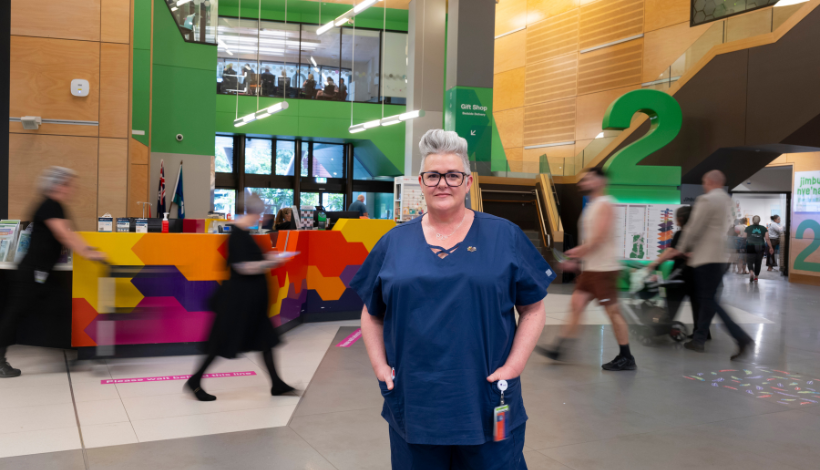
Queensland cancer researcher Rachel Edwards knows first-hand the effects of severe treatments of children’s cancer, because she’s on the ground every day.
A registered nurse with three decades’ worth of experience, Rachel is researching ways to mitigate distress for kids undergoing bone marrow transplant, or BMT. Kids just like Millie Trustum.
Rachel this year became a Col Reynolds Fellow, with The Kids’ Cancer Project committed to funding her research. Her research centres around integrating patient-reported outcome measures, or PROMs, into clinical practice to enhance symptom assessment and management for children undergoing BMT.
Rachel says she hopes to improve communication between children and their oncology team to ensure they are getting the help they need.
“Bone marrow transplant is left for diseases that are high risk or difficult to treat with conventional treatment, which is why Millie required it. It comes with several side effects that can cause much distress in children, as it’s more intense than chemotherapy,” she says.
“Part of my research is to understand what that is like for children using a patient-reported outcome measure (PROMs). This has not been done in BMT before in Australia.
“I'm hopeful that through my research children will eventually have a voice. I'm hoping it will help with communication between the child and the parent, and when implemented, between the family, child, and healthcare team looking after them.”
Rachel is The Kids’ Cancer Project’s research ambassador for K’day in 2025. Her dream is much like ours – for no child to die from cancer.
“When people are aware that research can create real change in the clinical practise, then it can make a real impact on patients and their treatments in future,” Rachel says.
“I think it's an amazing opportunity because anything that you do donate on K’day is going to be doubled.
“You’ll have twice the impact, and it's a great opportunity to band with the international community of awareness around childhood cancer on 15 February.”
Rachel believes that survival starts with science. With additional funding for research, Rachel says we can continue to improve survival rates for kids with cancer everywhere.
“Childhood cancer is still the leading cause of death after accidental injury. That is one huge reason why we need to raise awareness.
“There's an 84% survival rate in Australia, which is amazing, but what happens is we then have adults who are childhood cancer survivors with many late effects from their treatment. That’s why research is so important."
To donate to The Kids’ Cancer Project and aid researchers like Rachel discover better treatments and outcomes for kids with cancer this K’day, hit the button below.
